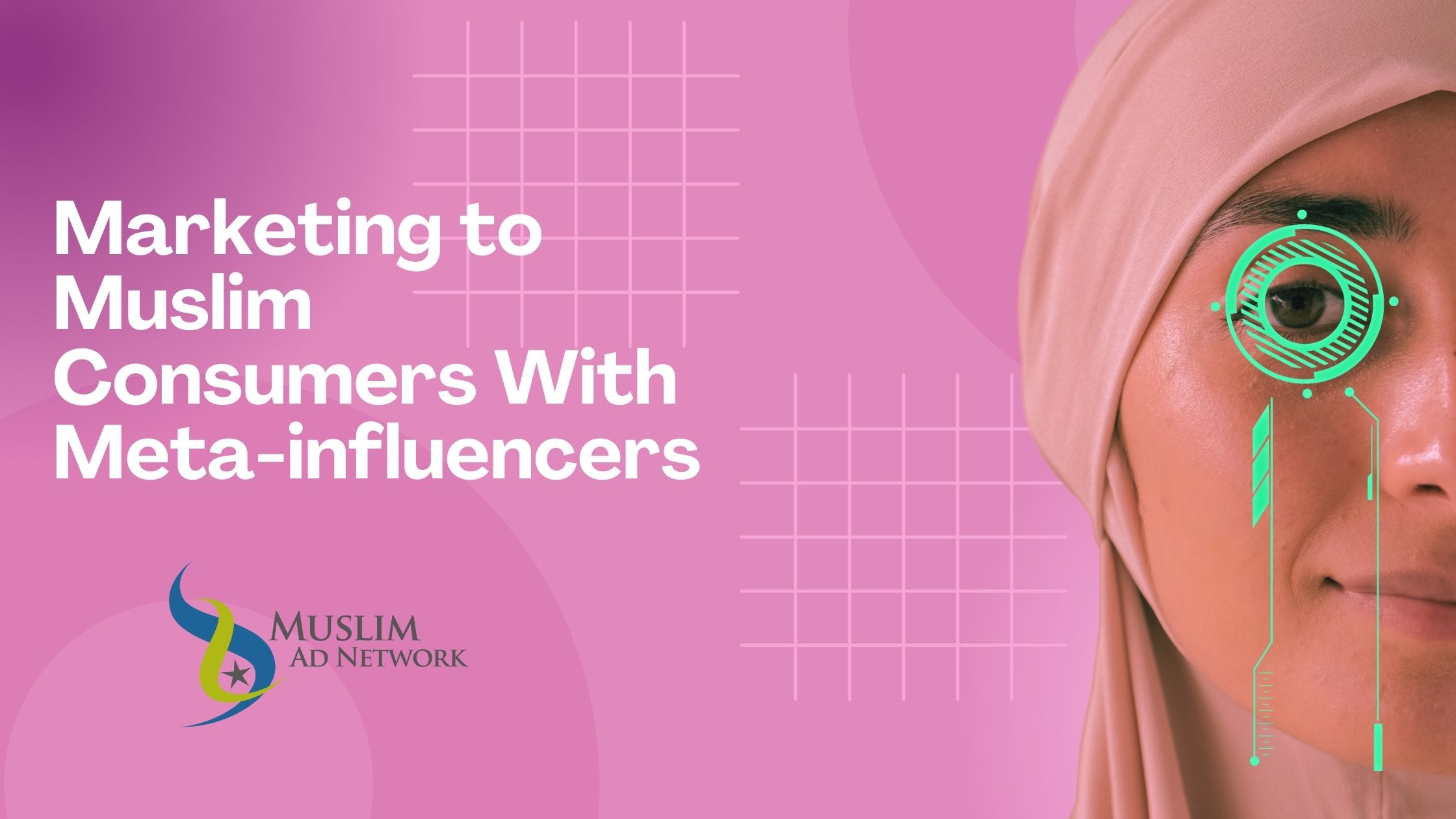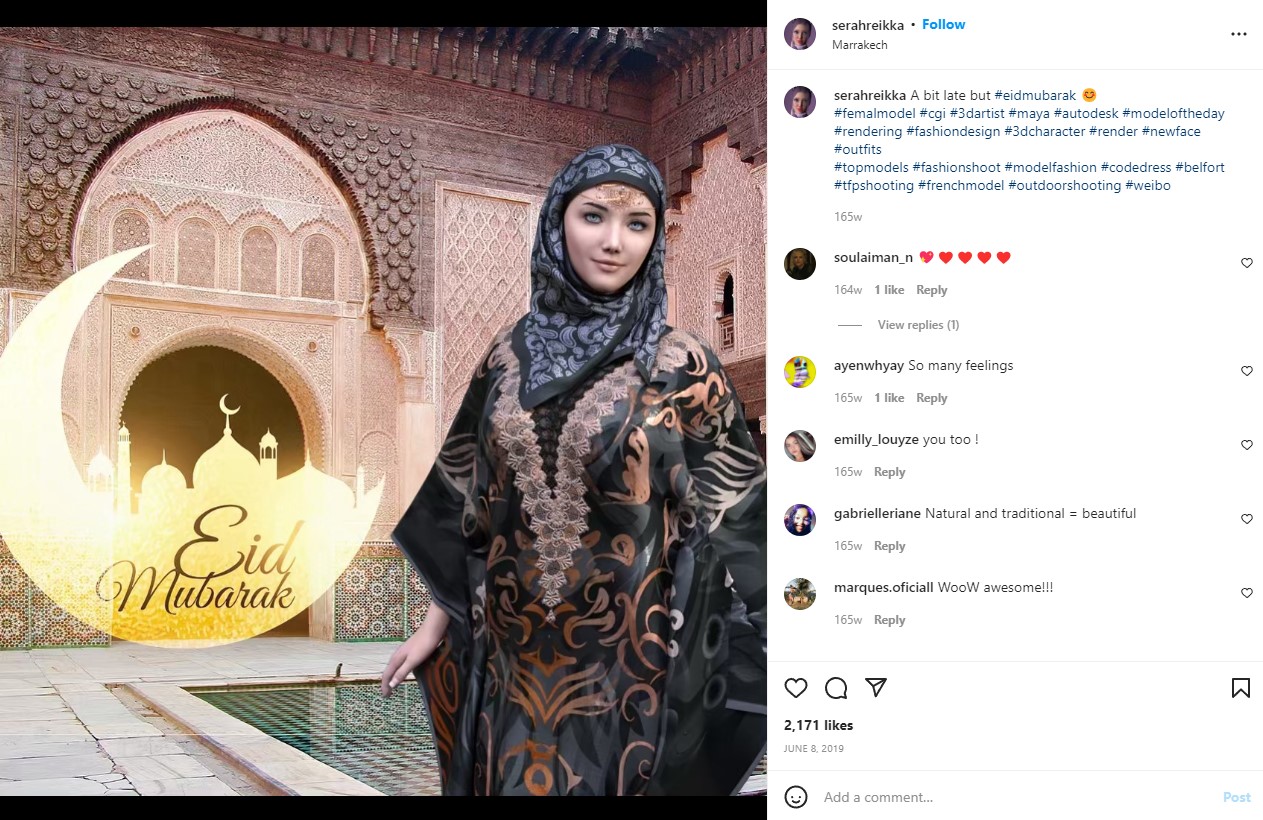
We recently published an article to help you find the right influencers for your halal marketing. What if you were able to take it a step further and work with a virtual influencer, better known as a meta-influencer in the metaverse?
“A virtual influencer, at times described as a virtual persona or virtual model, is a computer-generated fictional character that can be used for a variety of marketing-related purposes…” – Wiki
It seems more and more plausible that the metaverse is the next online frontier for halal brands so we encourage you to learn and experiment as much as possible.
Advertising in the metaverse for halal brands is in its early infancy, so creating and working with meta-influencers may sound too far-fetched for Muslim businesses at the moment. However, web3 is moving at the speed of light, and if you blink you get left behind. So, at the very least try to gain knowledge and start experimenting with the elements of web 3.0, like NFTs and the metaverse among other things.
Disclaimer: The Muslim Ad Network blog strives to give you top-notch information to help you market and advertise your business and organization. We urge those of the Muslim faith to investigate the permissibility (halal/haram) of tactics like creating avatars and meta-influencers for marketing purposes.
How Meta-influencers Can Change Your Muslim Marketing Approach
The metaverse – predicted to become an $800 billion industry by 2024 – offers your business or organization the chance to take advantage of consumer trends and investigate fresh ways to engage with customers. This is why influencer marketing in the metaverse is a natural piece of the puzzle. Influencer marketing is already massive on web2, with Insider Intelligence estimating it to be a $15 billion industry in 2022.
Let’s look at the four elements of meta-influencer marketing that will change your Muslim marketing approach:
1- Collaboration
There are many ways to collaborate with influencers on social media. These include sponsored social media posts, product discount codes, and more. Although these are effective ways to establish your presence, metaverse influencer marketing offers a more captivating collaboration with your brand.
Together with a meta-influencer, you can create a fully immersive 3D experience for the Muslim consumers you are targeting. For example, you can have the meta-influencer try out different modest fashion outfits to showcase your new autumn collection to their most active followers.
2- Monetization
You can monetize your joint ventures with meta-influencers on the metaverse thanks to NFTs or non-fungible tokens. The influencers you work with can grant followers admission to your sponsored events using NFTs. For example, you can offer collectible NFTs that also serve as tickets for your next installment of Halal Expo on web3.
When used in this way, these special tokens create income for your brand and the meta-influencer. Not only that, but it will boost brand recognition, and give your Muslim customers a sense of exclusivity.
3- Initiation
We mentioned that influencer marketing is a massive industry. It is important to know that a growing part of that belongs to meta-influencers. However, there is a growing trend of brands creating their own meta-influencers. This could be something you could explore if you are confident of its permissibility in Islam.
Why? Because:
1) After your initial investment, you do not need to be paying large sums of money to meta-verse influencers to feature your products; Lil Miquela – for instance – is reported to get paid $1600 per Instagram post.
2) Although meta-influencers like Serah Reikka have tried to reach out to Muslim audiences, the rest of her content is not palatable to a Muslim audience. This would be the case with all the virtual influencers currently available for collaboration.

4- Diversity
The real-world influencer industry has a diversity problem. A 2020 study by MSL showed that although black, indigenous, and people of color represent a market worth $4.8 trillion in buying power, there is a 35% pay gap between black and caucasian influencers. This is the biggest racial pay gap in any industry.
This is an opportunity for you when using or creating your own meta-influencer to promote those with minority backgrounds, given that they have the relevant Muslim audience for your products of course.
Conclusion
In this short blog post, we highlighted the current situation with brands collaborating with meta-influencers. We also discussed how your brand may use these influencers to engage Muslim users in the metaverse. We would like to reiterate that at the moment you should at least focus on gaining knowledge and experimenting with web3 elements including the metaverse and meta-influencers.
To start engaging with Muslim consumers more directly through online advertising, feel free to click the “START TARGETING MUSLIM CONSUMERS” button below:
start targeting muslim consumers